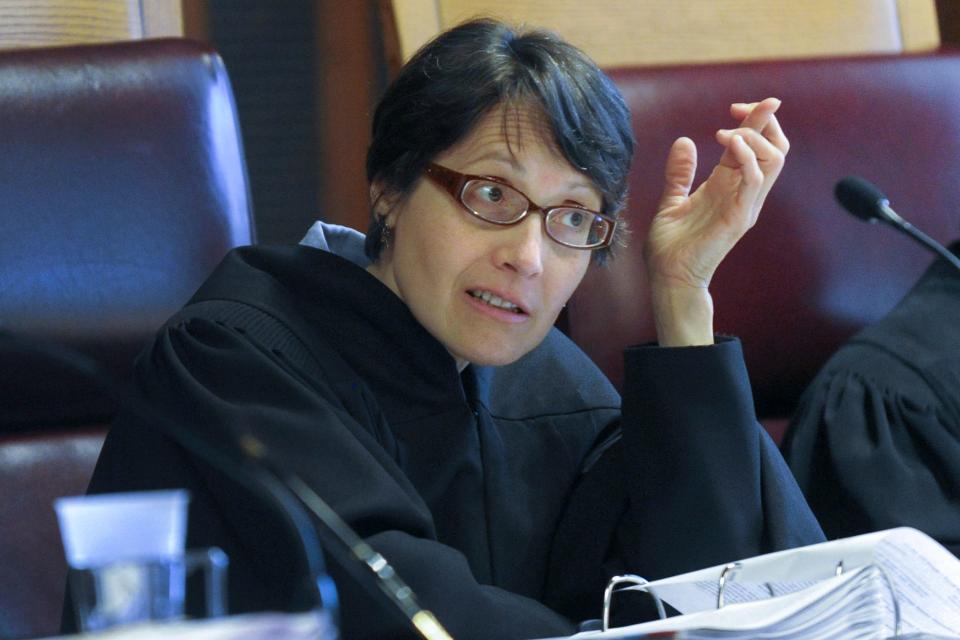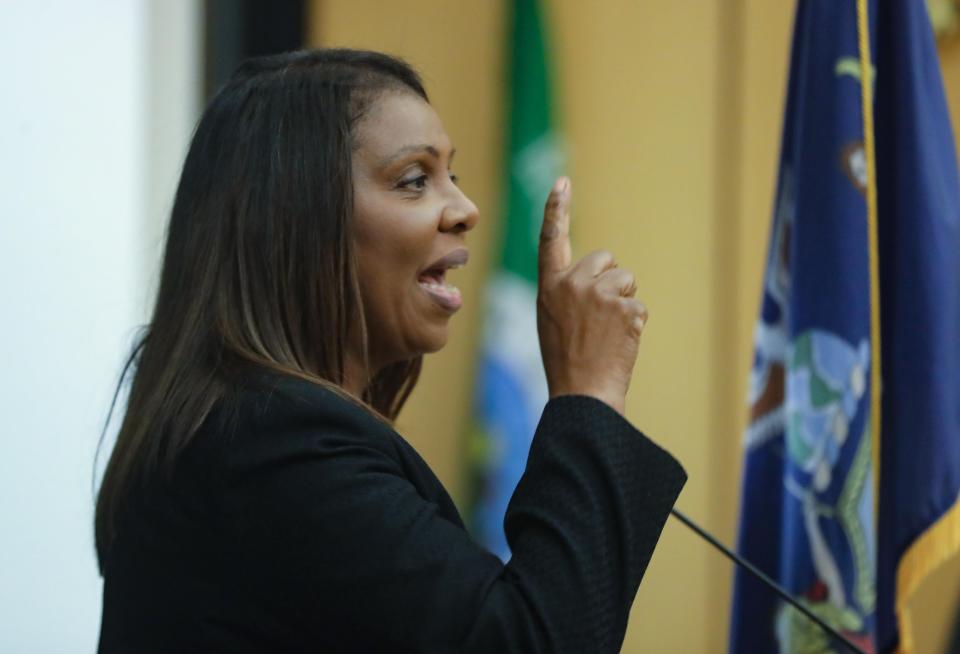Stalwart liberal on New York's top court says she would strike down gun law
New York State Court of Appeals Judge Jenny Rivera, one of the top court's two most liberal jurists, says she would strike down a state law that makes it easier to convict people who possess loaded firearms without a permit, following the U.S. Supreme Court's landmark Second Amendment decision last year.
In a dissenting opinion from one of several gun cases decided last Tuesday, Rivera said it was time to invalidate the law at issue — which says the mere possession of an unlicensed firearm implies an intent to use that firearm illegally.
This implication, enshrined in law, is used to prosecute certain gun crimes, some of which have a so-called "intent" requirement.

The Supreme Court's 2022 decision in New York State Rifle & Pistol Association v. Bruen found that a central part of New York's licensing process, requiring a special need to obtain a concealed-carry permit, violated the Second Amendment. Because of this, Rivera reasoned, New York can no longer presume that everyone who possesses an unlicensed firearm intends to use it illegally.
"Given the Bruen majority’s holding... the statutory presumption is unconstitutional on its face as it requires the jury to assume a defendant intends an unlawful use of a weapon merely because they possess the weapon in public," Rivera wrote.
Though she was the sole judge to call, explicitly, for the demise of a key gun law on constitutional grounds, Rivera's dissent may be a harbinger for things to come as courts across the country re-evaluate the legality of all manner of gun restrictions in the wake of Bruen.
"We’re going to see challenges to New York's gun laws start filtering through the court system," commented Peter Tilem, an attorney who regularly practices in Second Amendment law.
Already, federal judges have called into question various aspects of New York's gun laws, including restrictions on concealed-carry in houses of worship and the requirement that applicants possess a good moral character.
Tuesday's opinion from Rivera suggests a similar level of skepticism from within New York's top bench.
The main impact of the Bruen decision, beyond nixing one part of New York's gun licensing process, was to completely overhaul how courts review state and federal gun laws. In general, officials must now show how a gun restriction is similar to one in place during the "Founding Era," a historical test that has been subject to much criticism and confusion since it was handed down.
The rest of the Court of Appeals, in a six-member majority opinion, sidestepped the issue that Rivera tackled head-on Tuesday, a development that was celebrated by New York Attorney General Letitia James. The majority opinion essentially declined to address these vexing questions, ruling 6-1 that the specific defendants bringing the challenges did so too late.

“Gun safety laws protect New Yorkers and are commonsense tools in the fight against gun violence," James said in a statement. "Individuals who illegally possess a weapon are a threat to our communities and should be held accountable for the harm they pose."
The direct impact of Rivera's decision, if ultimately adopted by the full court, may not be catastrophic for law enforcement, according to Tarek Rahman, counsel to the Westchester County district attorney.
Rahman explained that the loss of this "intent" law would "not [be] all that impactful," based on the different ways prosecutors can charge gun crimes.
For instance, prosecutors would "rarely rely solely on the [intent] presumption as a basis for charging" criminal possession of a weapon, he said.
So while this "intent" law certainly makes it easier to prosecute gun crimes, it's rarely the linchpin that would cause a case to fall apart.
Nevertheless, Rivera cautioned in her opinion that the wider effects of the Bruen decision may yet be felt soon as other restrictions are challenged in court, "with immeasurable effects on the safety of our neighborhoods."
Asher Stockler is a reporter for The Journal News and the USA Today Network New York. You can send him an email at astockler@lohud.com. Reach him securely: asher.stockler@protonmail.com.
This article originally appeared on Rockland/Westchester Journal News: Liberal judge on NYS' top court says key gun law is unconstitutional

